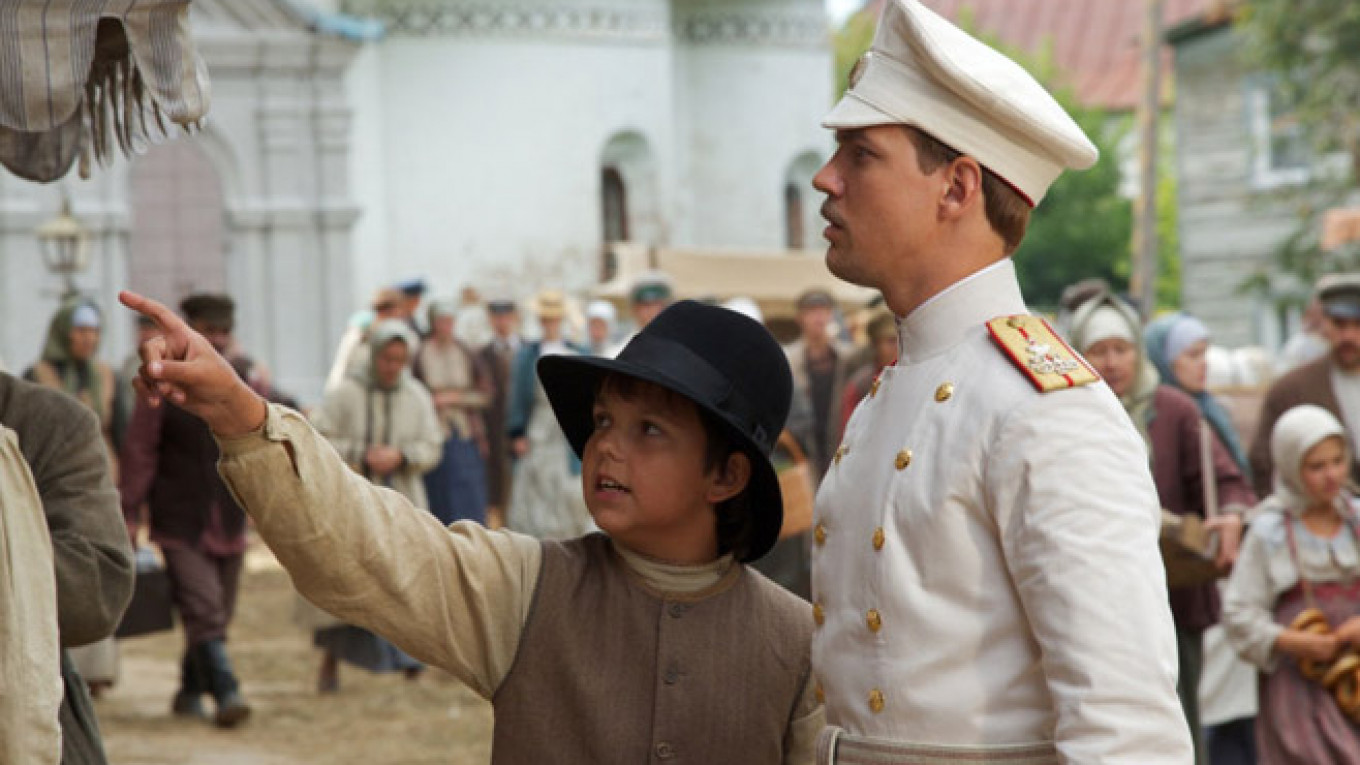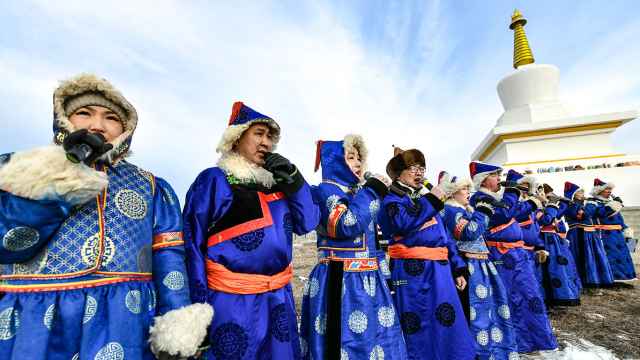Nikita Mikhalkov's "Sunstroke," set in post-revolutionary Crimea, took the best film prize at Russia's Golden Eagle award ceremony, beating out Andrei Zvyagintsev's "Leviathan," which has been nominated in the best foreign-language film category at next month's Academy Awards.
"Sunstroke" is based on both a short story of the same name by Ivan Bunin and the Nobel Prize- winning writer's memoirs "Cursed Days." It tells the story of an officer from the anti-communist White Army in a filtration camp in Crimea in 1920, who looks back on a love affair before the revolution, as the Reds decide what to do with their captured enemies.
"We worked toward this movie for 37 years," said Mikhalkov at the ceremony Friday, "The film is about something completely different but we did not know that it would be so close to what is happening today. Two years ago, we filmed in Odessa and that Odessa is no more."
"For the first time the competition was tough, believe me," Mikhalkov was quoted by Russian media as saying. "In previous years, it was more or less obvious [who would win]."
"Sunstroke" took five awards in total, including the awards for best music and best costume.
"Leviathan" did not go home empty-handed, winning four awards including best screenplay, best supporting actor for Roman Madyanov and best supporting actress for Yelena Lyadova.
Zvyagintsev said that he was not upset about not winning the main prize. "I do not think about the importance of awards. It is recognition and that's all. Which prize is more important doesn't matter."
The other nominees in the best film category were "Weekend," by Stanislav Govorukhin, "Star," by Anna Melikyan and "The Postman's White Nights," by Andrei Konchalovsky, who is Mikhalkov's brother.
A Message from The Moscow Times:
Dear readers,
We are facing unprecedented challenges. Russia's Prosecutor General's Office has designated The Moscow Times as an "undesirable" organization, criminalizing our work and putting our staff at risk of prosecution. This follows our earlier unjust labeling as a "foreign agent."
These actions are direct attempts to silence independent journalism in Russia. The authorities claim our work "discredits the decisions of the Russian leadership." We see things differently: we strive to provide accurate, unbiased reporting on Russia.
We, the journalists of The Moscow Times, refuse to be silenced. But to continue our work, we need your help.
Your support, no matter how small, makes a world of difference. If you can, please support us monthly starting from just $2. It's quick to set up, and every contribution makes a significant impact.
By supporting The Moscow Times, you're defending open, independent journalism in the face of repression. Thank you for standing with us.
Remind me later.






